“We added “Artificial Intelligence” to “Robotics & STEM” this year because it is an important and timely topic for young people to learn about.” – Theresa Richards
Prior to joining Τα κορίτσια του Προγράμματος Ρομποτικής Χάλυβα at Carnegie Mellon University’s (CMU) Το πεδίο Ρομποτική Κέντρο, Theresa Richards ήταν ένας καθηγητής της επιστήμης στο Πίτσμπουργκ όπου δημιούργησε ένα μάθημα βραβευμένο ενσωμάτωση της ρομποτικής σε μια πορεία ανθρώπινη ανατομία και φυσιολογία. The problem her organization is trying to solve is the demand for more people in STEM, και ειδικότερα, γυναίκες. A December 2018 έκθεση in Pittsburgh shows there are 80,000 STEM jobs currently available. “We believe that building robots builds confidence in STEM,” says Richards. 100% of students who responded to CMU’s 2018 confidence survey after joining the high school program reported feeling more confident in their STEM skills, και 87% of those who completed the end-of-year survey have said that they plan to major in a STEM field. Επιπλέον 80% of Alums since 2011 are either majoring, have majored in, or are working in a STEM Field.
Η Σφαιρική Αναζήτηση για Εκπαίδευση is pleased to welcome Theresa Richards from the Girls of Steel Robotics Program at Carnegie Mellon University (CMU). Richards facilitated Girls of Steel attending the 2017 National Coalition of Girls Schools conference, where students gave a presentation about their projects and the 2018 FIRST NAC conference, where they learned about political advocacy while meeting with their US representatives in Washington D.C. to push for funding for after-school STEM programs.
“The Chassis project was created in 2013 as a way to show students (and adults) interested in robotics that building a robot is fun and not intimidating. ” – Theresa Richards
Theresa, καλως ΗΡΘΑΤΕ. Please step us through the process you use in your program. How does the student-to-mentor interaction work?
At the high school level of the program, we have a student leadership council that leads along with mentors who are Carnegie Mellon faculty and staff, γονείς, and parents of former student members. The students have titles like Business Project Manager, Technical Projects Manager and Design Lead, Programming Lead, Mechanical Lead, and Electronics Lead along with Media Lead, Finance Lead, Outreach Lead, Awards Lead, and Video Lead. Students select both a business and technical sub-team, making a well-rounded organization. The mentors guide and support the student leads, assist with student training as needed, and oversee the program in general to be sure we have space to work, robots available for outreach, travel arrangements, applications, competition registrations, και τα λοιπα.
Student members also mentor less experienced or younger members at multiple levels in the program. This near-peer mentoring model offers leadership opportunities to students as they move through the Girls of Steel Robotics pipeline of programs.
The Girls of Steel program has developed a strong student leadership model over time, because students take on both formal and informal leadership roles each year during preseason training (Sept. to Dec.), build season (Ιαν. and Feb.), competition season (Θάλασσα. to Apr.), and off-season (May to Aug.). After reviewing this year’s leadership roles, we plan to take action to clearly define the tasks expected of students in those roles and encourage students to delegate more. Learning to lead is a process.
How many students are in the program now and what are your strategies for expanding the robotics teams?
The numbers of students (148) in the formal Girls of Steel Robotics programs for the 2018-2019 year are listed with the respective age groups below.
Grades 9-12: 49
Grades 8 & 9: 18
Grades 4 να 8 (co-ed): 30
Grades K-3 (co-ed): 51
Our plans to expand include collaborations with organizations or schools to assist with forming new robotics teams in their communities.
“The Girls of Steel Robotics program is unique because it offers a FIRST Robotics Competition team for Pittsburgh area high school girls.” – Theresa Richards
Can you talk us through two or three projects from the program that illustrate the impact of the learning model?
Three major projects are the Chassis Project initiative, the annual Symposium for middle school students, and Robotics Feiyue, a summer camp for Chinese high school students.
The Chassis project was created in 2013 as a way to show students (and adults) interested in robotics that building a robot is fun and not intimidating. The robots can be assembled and then operated/driven in less than 2 ώρες. So far we have run over 50 Chassis project workshops or demos, reaching people of all ages.
On April 7, 2019, we held our 4th annual Aspiring Young Women in AI, Robotics & STEM Symposium. We added “Artificial Intelligence” to “Robotics & STEM” this year because it is an important and timely topic for young people to learn about. Our attendance of 110 students at the event doubled compared to prior years. In our post-survey, 87% would recommend our Symposium to their friends. 60% reported that their interest in STEM increased. While 31% interest in STEM remained the same. Τελικά 97% of attendees agreed with the statement, “I believe that I can do STEM!”
Robotics Feiyue, a collaboration between Carnegie Mellon University (CMU) and ITET (Impressive Talents Education and Technology, Ltd. (Beijing, Κίνα) that began in 2013, has served approximately 140 Chinese students who come to the CMU campus in Pittsburgh for two weeks to learn robotics at the Field Robotics Center. Girls of Steel high school students share their knowledge of robotics by acting as teaching assistants for the campers.
What do you think makes Girls of Steel unique as a learning initiative?
The Girls of Steel Robotics program is unique because it offers a FIRST Robotics Competition team for Pittsburgh area high school girls. It’s now an outreach program at Carnegie Mellon, which offers robotics teams, summer camps, and activities for all ages. Our unique Chassis project has been completed by groups of adult executives as a team building activity as well as by elementary-aged students dropping by our demo while at the Pittsburgh Home & Garden Show with their parents. Young girls in the area who have met Girls of Steel members at outreach events look forward to being old enough to be a “Girl of Steel.” Girls from as far as Missouri and Guatemala have traveled to Pittsburgh to participate at our annual FIRST LEGO League Skills summer camp.
FRC: FIRST Robotics Competition
FTC: FIRST Tech Challenge
FLL: FIRST LEGO League
FLL Jr: FIRST LEGO League Junior
“Learning to lead is a process.” -Theresa Richards
Five years from now – what are your predictions for the Girls of Steel Robotics program?
I predict Girls of Steel Robotics, will be fully funded and sustainable, offering the Pittsburgh region a one-of-a kind Regional Robotics Education Center. A place where people of all ages come to learn robotics, teachers receive professional development, engineers and other professionals serve on panels presenting to students about their careers in STEM, students participate on robotics teams or attend robotics workshops and summer camps as they fit their schedule, robotics teams in the area stop in to collaborate, use the machine shop, or test their robot on the full-size robotics practice field.
C M Rubin and Theresa Richards
Σας ευχαριστούμε για μας 800 συν παγκόσμια συνεισφέροντες, δάσκαλοι, επιχειρηματίες, ερευνητές, οι ηγέτες των επιχειρήσεων, οι μαθητές και οι ηγέτες της σκέψης από κάθε τομέα για την ανταλλαγή προοπτικές σας για το μέλλον της μάθησης με Η Σφαιρική Αναζήτηση για Εκπαίδευση κάθε μήνα.
C. M. Rubin (Cathy) Είναι ο ιδρυτής της CMRubinWorld, μια ηλεκτρονική εκδοτική εταιρεία επικεντρώθηκε στο μέλλον της παγκόσμιας μάθησης και συν-ιδρυτής του πλανήτη στην τάξη. Είναι συγγραφέας τριών βιβλίων best-seller και δύο ευρέως διαβάσει σε απευθείας σύνδεση σειρά. Rubin έλαβε 3 Upton Sinclair βραβεία για το «The Σφαιρική Αναζήτηση για την Παιδεία». Η σειρά που υποστηρίζει για όλους τους μαθητές ξεκίνησε το 2010 και συγκεντρώνει διακεκριμένους ηγέτες σκέψης από όλο τον κόσμο για να διερευνήσει τα βασικά ζητήματα της εκπαίδευσης που αντιμετωπίζουν οι χώρες.
Ακολουθήστε C. M. Rubin στο Twitter:www.twitter.com/@cmrubinworld
Η Παγκόσμια αναζήτηση για την Εκπαίδευση της Κοινότητας Σελίδα

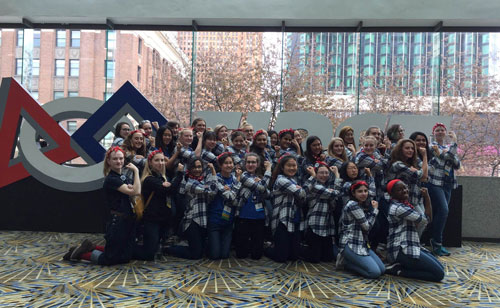
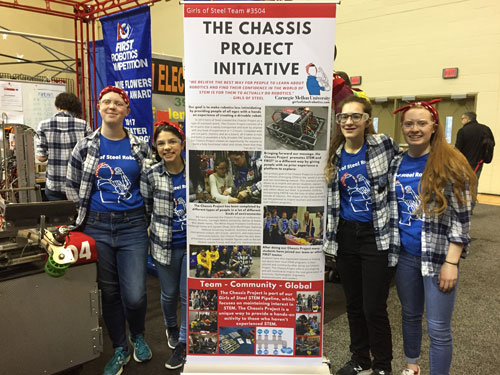

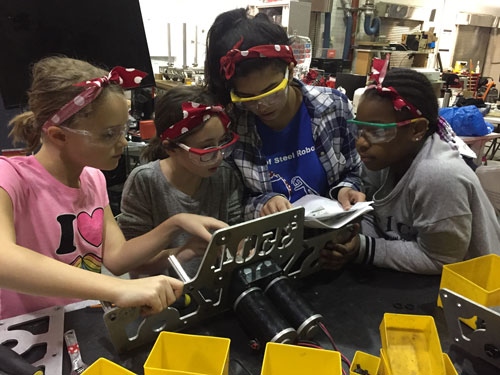
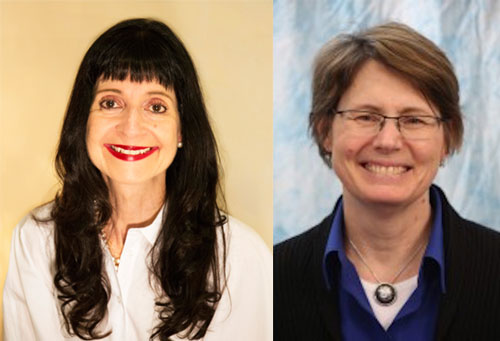



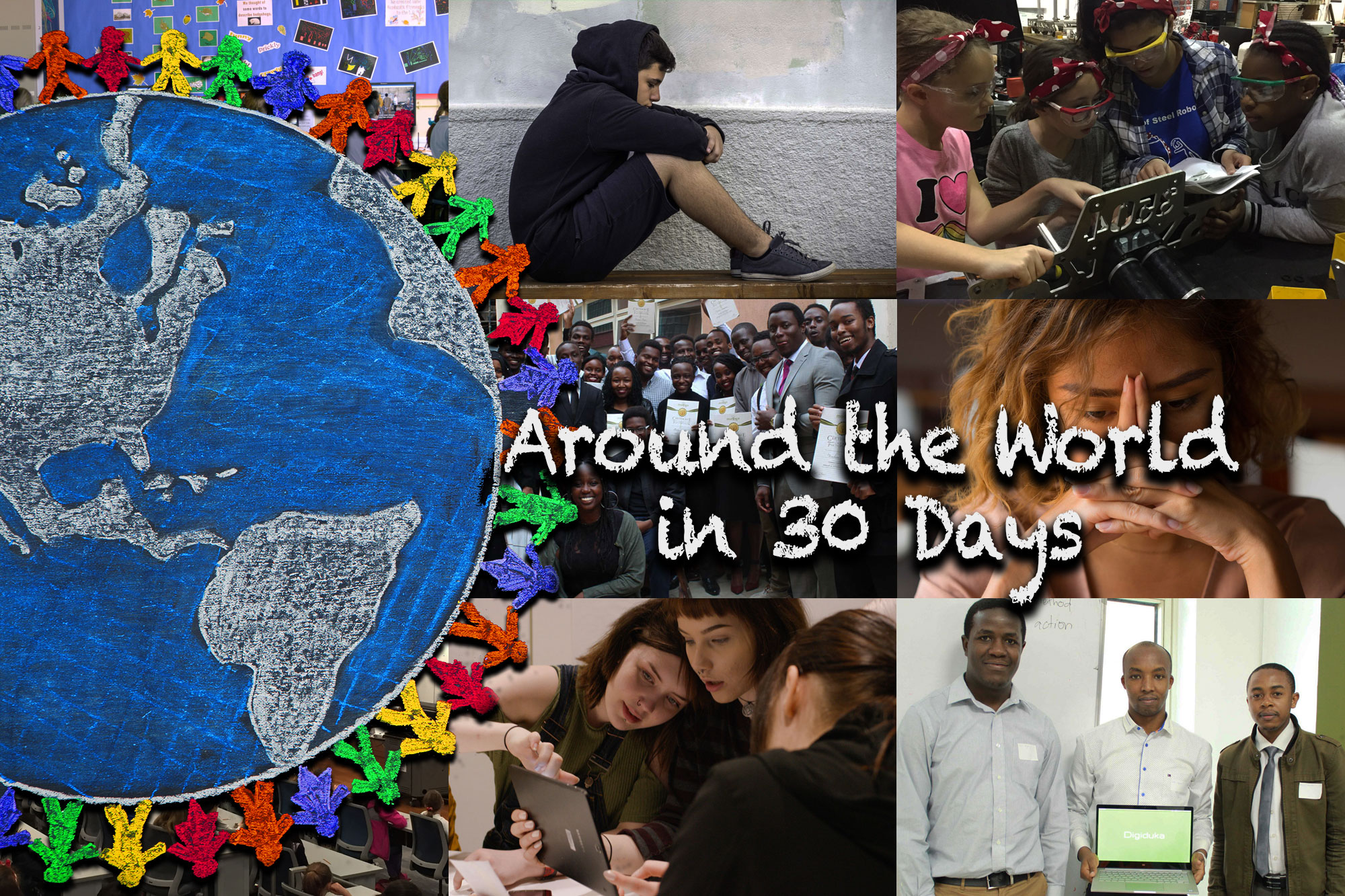
Πρόσφατα σχόλια